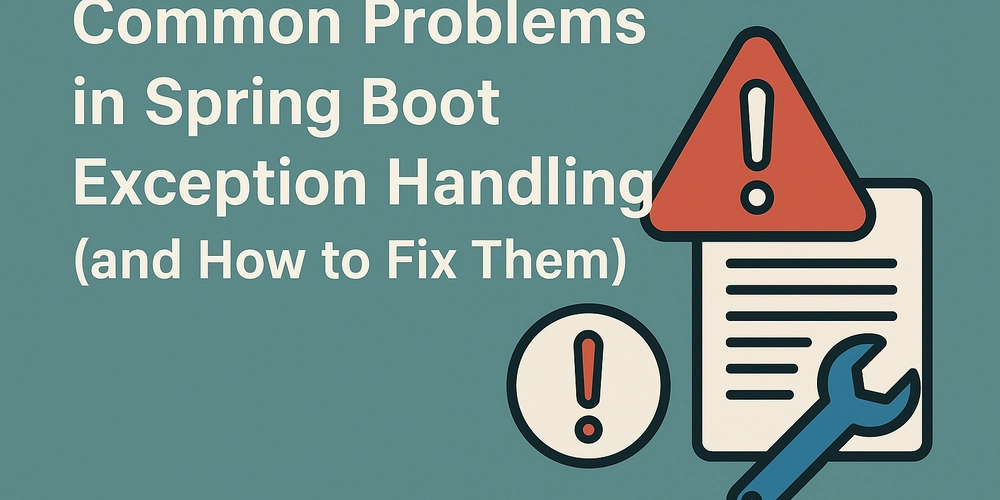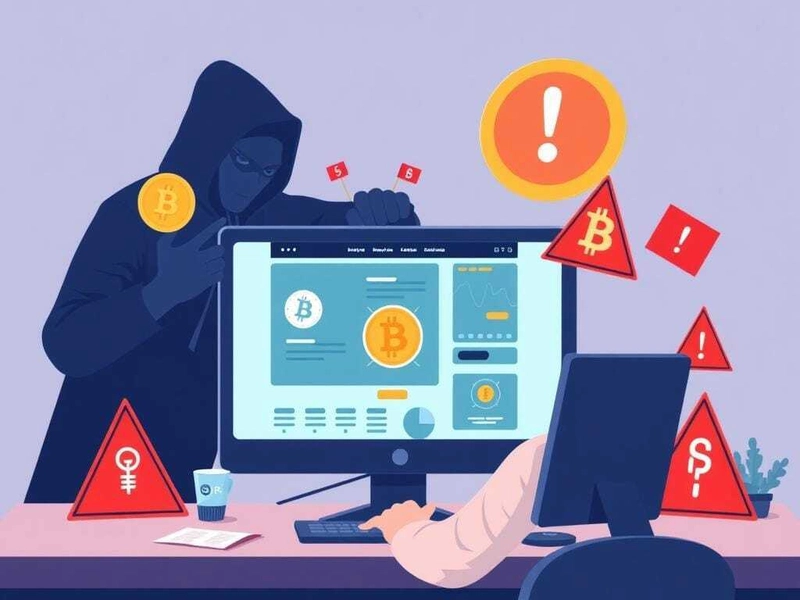Outsmarting the Con Artists: The Most Common Scams and How to Dodge Them
Have you ever gotten a phone call from someone claiming to be from the IRS — or worse, a scammer who even tries to impersonate a bank? If you’re anything like many of us, you’ve seen (or even been on the receiving end of) these scams. And while the schemes may change, one thing remains constant: these con artists are constantly evolving. Let’s dive into some of the most common scams and share a few tips on how to not only protect yourself but maybe even have a little fun with them. 1. Phone Scams: When a Stranger Calls You know the drill: your phone rings and the voice on the other end claims you owe money, that your bank account has been compromised, or even that your loved ones are in danger. Sometimes, scammers even pretend to be law enforcement or tech support. One popular tactic is the “IRS scam” where a scammer insists that a hefty tax bill will land you in jail. Tip: If an unknown caller tells you that you’re in immediate danger or must wire money, simply hang up. It might sound extreme, but that’s often the safest course of action. Some savvy folks even block these numbers outright — and trust us, it works. 2. Gift Card Scams: The “Redeem” Disaster Imagine this: a scammer tries to con you into paying for “gift cards” and then gets irate when you accidentally redeem them yourself instead. There are dozens of posts online where scammers have bragged about how confident they are — only to be met with the ultimate twist: a free gift card redeemed into someone else’s account. What to remember: Never give out your gift card details or agree to purchase gift cards from unsolicited sources. And if you ever see a scammer bragging about “redeeming” a card, just say, “No, I’m not falling for that.” The best defense? Keeping your digital wallet — and your gift cards — secure. 3. Crypto and Investment Scams: Too Good to Be True From promises of doubling your money to receiving hundreds of thousands in fraudulent transfers, crypto scams are on the rise. One post we came across detailed a scammer’s elaborate scheme involving fake cryptocurrency wallets and phishing for private keys. Pro Tip: If someone you don’t know starts talking about investing in crypto, remember that reputable financial institutions or government agencies will never ask you to wire money or share your private keys. Always double-check account details and NEVER let a scammer rush you into making a decision. 4. Romance and Emotional Scams: When Love Turns Sour Romance scams are particularly heartbreaking. Whether it’s a scammer pretending to be a sweet soul in need or even someone posing as a caring friend, the goal is always the same: to steal your money and trust. One post humorously recounted how a scammer (or “scammer girlfriend” as some scambaiters call them) ended up entangled in a relationship of convenience, only to be called out for it later. Remember: Real relationships build over time. If someone you’ve met online starts demanding money or personal information very quickly, it’s time to back off — and report the behavior. 5. Insurance and Refund Scams: The Fake Accident Insurance scammers often use elaborate stories involving fake car accidents or bogus refund schemes. Imagine a scammer pretending that your car was involved in an accident — and then trying to claim a massive payout. These scams can be so convincing that even unsuspecting victims sometimes fall for them. The takeaway: If you ever receive a call about a supposed accident you didn’t cause or an unexpected refund, take a deep breath, contact your bank or insurance company using an official number, and verify the details before taking any action. 6. Scambaiting: Turning the Tables on the Con Artists For many online communities, scambaiting has become an art form. Skilled YouTubers and streamers (like the well-known Kitboga and Jim Browning) spend hours on the phone with scammers — wasting their time, exposing their tactics, and even turning the scam around. Whether it’s by pretending to be a clueless customer, using humorous insults, or even referencing pop culture (remember the hilarious “are you sure you’re not a scammer?” moments?), these scambaiters give us a glimpse into how absurd the scammer world really is. Fun fact: Some posts show scammers getting so frustrated they can’t help but shout, “WHY DID YOU REDEEM IT?!” — and that’s often the moment when the scammer’s façade finally cracks. 7. Protecting Yourself: Practical Tips Be Skeptical: If something sounds too good (or too bad) to be true, it probably is. Verify Contacts: Always use official numbers or websites. Don’t trust a number given in an unsolicited call or text. Educate Family and Friends: Many scams target the elderly or less tech-savvy. Make sure those you care about know to double-check any requests for money or personal information. Use Technology: Whether it’s blocking unknown numbers, using two-

Have you ever gotten a phone call from someone claiming to be from the IRS — or worse, a scammer who even tries to impersonate a bank? If you’re anything like many of us, you’ve seen (or even been on the receiving end of) these scams. And while the schemes may change, one thing remains constant: these con artists are constantly evolving. Let’s dive into some of the most common scams and share a few tips on how to not only protect yourself but maybe even have a little fun with them.
1. Phone Scams: When a Stranger Calls
You know the drill: your phone rings and the voice on the other end claims you owe money, that your bank account has been compromised, or even that your loved ones are in danger. Sometimes, scammers even pretend to be law enforcement or tech support. One popular tactic is the “IRS scam” where a scammer insists that a hefty tax bill will land you in jail.
Tip: If an unknown caller tells you that you’re in immediate danger or must wire money, simply hang up. It might sound extreme, but that’s often the safest course of action. Some savvy folks even block these numbers outright — and trust us, it works.
2. Gift Card Scams: The “Redeem” Disaster
Imagine this: a scammer tries to con you into paying for “gift cards” and then gets irate when you accidentally redeem them yourself instead. There are dozens of posts online where scammers have bragged about how confident they are — only to be met with the ultimate twist: a free gift card redeemed into someone else’s account.
What to remember: Never give out your gift card details or agree to purchase gift cards from unsolicited sources. And if you ever see a scammer bragging about “redeeming” a card, just say, “No, I’m not falling for that.” The best defense? Keeping your digital wallet — and your gift cards — secure.
3. Crypto and Investment Scams: Too Good to Be True
From promises of doubling your money to receiving hundreds of thousands in fraudulent transfers, crypto scams are on the rise. One post we came across detailed a scammer’s elaborate scheme involving fake cryptocurrency wallets and phishing for private keys.
Pro Tip: If someone you don’t know starts talking about investing in crypto, remember that reputable financial institutions or government agencies will never ask you to wire money or share your private keys. Always double-check account details and NEVER let a scammer rush you into making a decision.
4. Romance and Emotional Scams: When Love Turns Sour
Romance scams are particularly heartbreaking. Whether it’s a scammer pretending to be a sweet soul in need or even someone posing as a caring friend, the goal is always the same: to steal your money and trust. One post humorously recounted how a scammer (or “scammer girlfriend” as some scambaiters call them) ended up entangled in a relationship of convenience, only to be called out for it later.
Remember: Real relationships build over time. If someone you’ve met online starts demanding money or personal information very quickly, it’s time to back off — and report the behavior.
5. Insurance and Refund Scams: The Fake Accident
Insurance scammers often use elaborate stories involving fake car accidents or bogus refund schemes. Imagine a scammer pretending that your car was involved in an accident — and then trying to claim a massive payout. These scams can be so convincing that even unsuspecting victims sometimes fall for them.
The takeaway: If you ever receive a call about a supposed accident you didn’t cause or an unexpected refund, take a deep breath, contact your bank or insurance company using an official number, and verify the details before taking any action.
6. Scambaiting: Turning the Tables on the Con Artists
For many online communities, scambaiting has become an art form. Skilled YouTubers and streamers (like the well-known Kitboga and Jim Browning) spend hours on the phone with scammers — wasting their time, exposing their tactics, and even turning the scam around.
Whether it’s by pretending to be a clueless customer, using humorous insults, or even referencing pop culture (remember the hilarious “are you sure you’re not a scammer?” moments?), these scambaiters give us a glimpse into how absurd the scammer world really is.
Fun fact: Some posts show scammers getting so frustrated they can’t help but shout, “WHY DID YOU REDEEM IT?!” — and that’s often the moment when the scammer’s façade finally cracks.
7. Protecting Yourself: Practical Tips
- Be Skeptical: If something sounds too good (or too bad) to be true, it probably is.
- Verify Contacts: Always use official numbers or websites. Don’t trust a number given in an unsolicited call or text.
- Educate Family and Friends: Many scams target the elderly or less tech-savvy. Make sure those you care about know to double-check any requests for money or personal information.
- Use Technology: Whether it’s blocking unknown numbers, using two-factor authentication, or even installing a dash cam (for car-related scams), technology can be a great shield against scammers.
- Report Suspicious Activity: Let your bank, the police, or trusted community forums know when you suspect a scam. The more information out there, the harder it is for scammers to operate.
Final Thoughts
The world of scams is as diverse as it is devious. From phone scams to crypto fraud and everything in between, scammers continue to adapt and target unsuspecting victims. But thanks to the efforts of dedicated scambaiters and informed communities, we’re learning to outsmart them — and even share a laugh in the process.











































































































































































![[The AI Show Episode 142]: ChatGPT’s New Image Generator, Studio Ghibli Craze and Backlash, Gemini 2.5, OpenAI Academy, 4o Updates, Vibe Marketing & xAI Acquires X](https://www.marketingaiinstitute.com/hubfs/ep%20142%20cover.png)




























































































































![[DEALS] The Premium Learn to Code Certification Bundle (97% off) & Other Deals Up To 98% Off – Offers End Soon!](https://www.javacodegeeks.com/wp-content/uploads/2012/12/jcg-logo.jpg)


![From drop-out to software architect with Jason Lengstorf [Podcast #167]](https://cdn.hashnode.com/res/hashnode/image/upload/v1743796461357/f3d19cd7-e6f5-4d7c-8bfc-eb974bc8da68.png?#)








































































































.png?#)

































_Christophe_Coat_Alamy.jpg?#)
 (1).webp?#)





































































































![Apple Considers Delaying Smart Home Hub Until 2026 [Gurman]](https://www.iclarified.com/images/news/96946/96946/96946-640.jpg)
![iPhone 17 Pro Won't Feature Two-Toned Back [Gurman]](https://www.iclarified.com/images/news/96944/96944/96944-640.jpg)
![Tariffs Threaten Apple's $999 iPhone Price Point in the U.S. [Gurman]](https://www.iclarified.com/images/news/96943/96943/96943-640.jpg)







































































































































